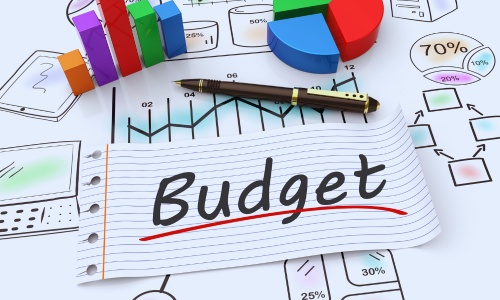
Before you start house hunting, take a comprehensive look at your finances. Calculate your monthly income, expenses, and existing debts. Use this information to determine how much you can realistically afford to spend on a home. Financial experts often recommend that your mortgage payment should not exceed 28% of your gross monthly income.
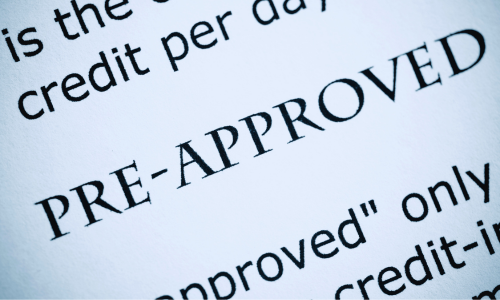
A mortgage pre-approval gives you a clear picture of how much a lender is willing to loan you based on your financial situation. This helps you stay within your budget and shows sellers that you are a serious buyer. However, remember that just because you’re approved for a certain amount doesn’t mean you should borrow the maximum.
Read Our Blog Your Mortgage Checklist

The purchase price of a home is just the beginning. Don’t forget to factor in additional costs such as property taxes, homeowners insurance, maintenance, repairs, utilities, and possible homeowners association (HOA) fees. These costs can add up quickly and should be considered when determining how much house you can afford.
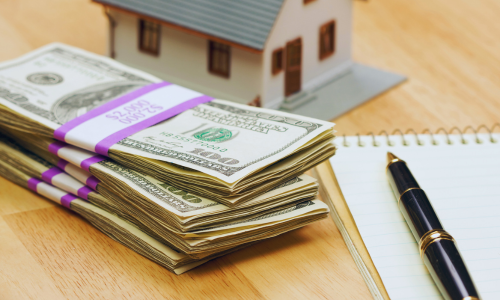
A larger down payment can significantly reduce your monthly mortgage payments and the total amount of interest paid over the life of the loan. Aim to save at least 20% of the home’s purchase price to avoid private mortgage insurance (PMI) and secure better loan terms.
Read Our Blog Finding Balance on the Path to Homeownership
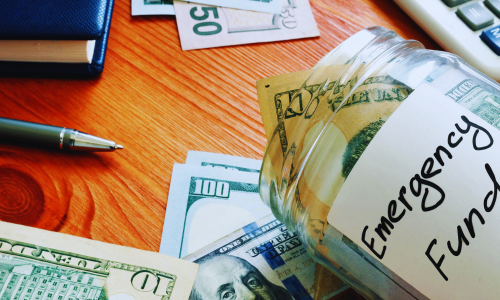
Owning a home comes with unexpected expenses. An emergency fund can help you cover sudden repairs, medical bills, or job loss without jeopardizing your financial stability. Ideally, this fund should cover three to six months of living expenses.

While it’s tempting to splurge on renovations and upgrades, it’s essential to prioritize projects that add value and stay within your budget. Not all improvements will yield a return on investment, and excessive spending can lead to financial strain.
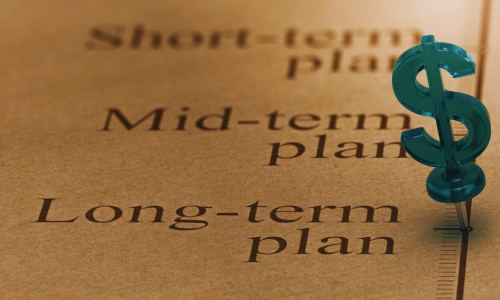
Think about your long-term goals and how your home purchase fits into them. Are you planning to stay in the home for several years, or do you anticipate relocating soon? Your plans can impact the type of mortgage you choose and how much you’re willing to invest in the property.

Even after buying your home, continue to live below your means. Avoid lifestyle inflation and keep your non-essential spending in check. This habit will help you build savings, pay down your mortgage faster, and reduce financial stress.

A financial advisor or real estate professional can provide valuable insights tailored to your specific situation. They can help you navigate the complexities of home buying, create a realistic budget, and make informed decisions.


Different types of mortgages come with varying terms and conditions. Understanding the differences between fixed-rate, adjustable-rate, FHA, VA, and other loan options can help you choose the best mortgage for your financial situation and long-term goals.

The location of your home can significantly impact your overall costs. Research the cost of living, property taxes, and potential for property value appreciation in different areas. Sometimes, a slightly less expensive home in a desirable neighborhood can be a better investment than a pricier home elsewhere.
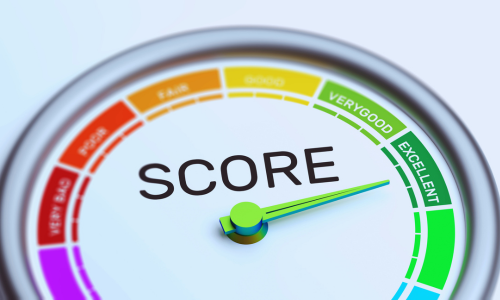
A higher credit score can help you secure a lower interest rate on your mortgage, saving you thousands of dollars over the life of the loan. Before applying for a mortgage, work on improving your credit score by paying down debts, correcting any errors on your credit report, and making timely payments.
Check Out Our Blog A Guide to Boosting Your Credit Score: Understanding and Improving Your Financial Standing

Consider how future changes in your income might affect your ability to afford your home. For example, if you plan to start a family, take a career break, or retire soon, ensure that your mortgage payments will remain manageable under different financial scenarios.
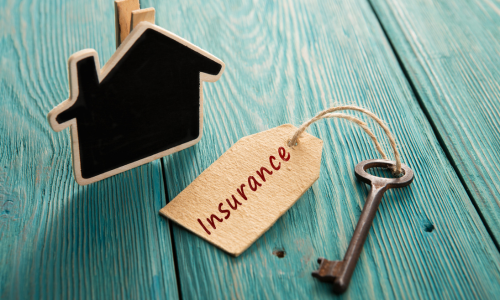
Ensure you have adequate homeowners insurance to protect your investment. Shop around for the best rates and coverage, and periodically review your policy to make sure it continues to meet your needs as circumstances change.
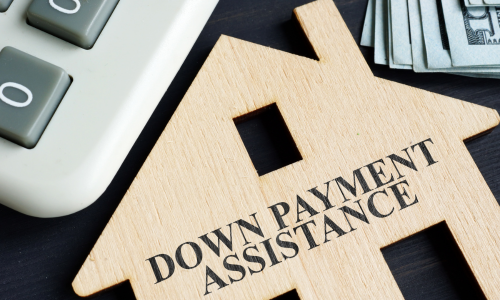
Look into federal, state, and local down payment assistance programs that can help reduce your initial out-of-pocket costs. These programs can make homeownership more accessible and free up more of your budget for other expenses.
Check out our Blog Navigating Home Buying Programs and Incentives in Canada
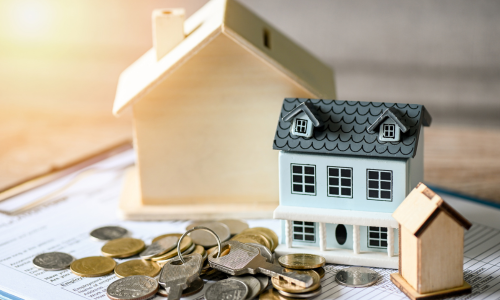
Set aside money each month for regular home maintenance and repairs. A good rule of thumb is to save 1-2% of your home’s value annually for these expenses. This will help you avoid financial surprises when repairs are needed.
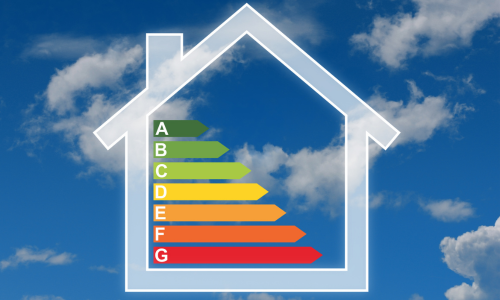
Energy-efficient homes can save you money on utility bills. When house hunting, look for features like energy-efficient windows, insulation, appliances, and heating/cooling systems. If your new home isn’t energy-efficient, consider making upgrades that will pay off in the long run.
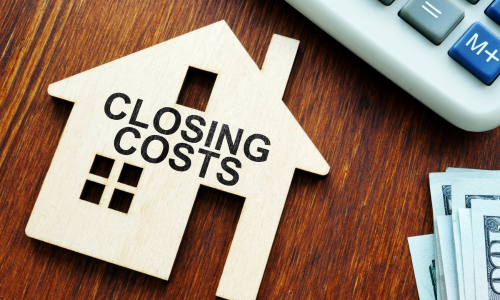
Be prepared for closing costs, which typically range from 2% to 5% of the purchase price. These include fees for the mortgage, appraisal, title insurance, and other services. Knowing these costs upfront will help you avoid last-minute financial stress.
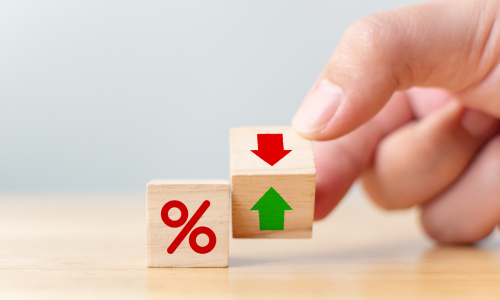
Interest rates can significantly impact your monthly mortgage payment and the total amount you pay over the life of the loan. Stay informed about current interest rates and consider locking in a rate if it aligns with your financial strategy.
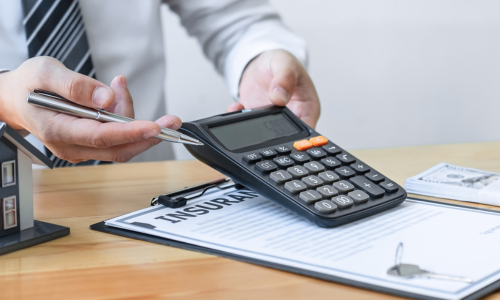
Before finalizing your mortgage, carefully review your loan estimate, which outlines the terms and costs of your loan. Make sure you understand all the details and ask your lender to clarify anything that’s unclear.

Recessions bring economic uncertainty, affecting job security, income stability, and overall financial health. For homeowners or those looking to buy a home during such times, the risk of becoming house poor can increase significantly. Here are some strategies to help you navigate homeownership during a recession and maintain financial stability.
During a recession, several factors can contribute to the risk of becoming house poor:
Having a robust emergency fund becomes even more critical during a recession. Aim to have at least six to twelve months’ worth of living expenses saved. This fund can cover mortgage payments, utilities, and other essential costs if your income is disrupted.
Owning a home is often considered a cornerstone of the North American dream, symbolizing stability, accomplishment, and a sense of belonging. However, with this significant milestone comes a myriad of responsibilities and unexpected expenses. One of the most crucial yet often overlooked aspects of homeownership is the need for a robust emergency fund. Here’s why having an emergency fund is vital for homeowners.
Unexpected Repairs and Maintenance
Homes, like any other physical structures, are subject to wear and tear. From a leaky roof to a malfunctioning HVAC system, unexpected repairs can crop up at any time. Without an emergency fund, these unforeseen expenses can strain your budget and create financial stress.
For instance, if your water heater suddenly breaks down, the cost of replacement can be substantial. Having an emergency fund ensures that you can address these issues promptly without having to dip into savings meant for other purposes or, worse, take on debt.
Life is unpredictable, and job security is never guaranteed. Whether due to layoffs, illness, or other unforeseen circumstances, losing a source of income can be a devastating blow, especially when you have a mortgage to pay. An emergency fund acts as a financial cushion, providing you with the means to cover your mortgage payments and other essential expenses during tough times.
Having a reserve of three to six months’ worth of living expenses can give you the peace of mind and financial stability needed to navigate through periods of income uncertainty without jeopardizing your home.
Major life events, such as the birth of a child, divorce, or unexpected medical expenses, can significantly impact your financial situation. These events often bring about additional costs that are not part of your regular budget. An emergency fund helps absorb the financial shock, allowing you to manage these situations without the added stress of wondering how to pay for them.
Financial stability is more than just having a steady income; it’s about being prepared for the unexpected. An emergency fund enhances your overall financial security, allowing you to handle emergencies without disrupting your long-term financial goals. This preparedness translates into peace of mind, knowing that you have a safety net to fall back on when life throws you a curveball.
When faced with unexpected expenses, many homeowners resort to high-interest credit cards or personal loans, which can lead to a cycle of debt that is difficult to escape. An emergency fund allows you to pay for emergencies out of pocket, avoiding the need to take on debt and the associated interest payments. This can save you a significant amount of money in the long run and help maintain a healthier financial profile.
Start Small: Begin by setting aside a small portion of your income each month. Even a modest amount can grow over time and contribute to your financial safety net.
Automate Savings: Set up automatic transfers to your emergency fund to ensure consistent contributions without the temptation to spend the money elsewhere.
Cut Unnecessary Expenses: Review your budget and identify areas where you can cut back. Redirect those funds to your emergency savings.
Use Windfalls Wisely: If you receive a tax refund, bonus, or any other unexpected windfall, consider putting a portion of it into your emergency fund.
Stay Committed: Building an emergency fund takes time and discipline. Stay committed to your goal, and remember that every little bit helps.
Stick to a conservative budget that prioritizes essential expenses and cuts unnecessary spending. This will help you build a financial cushion and prepare for any unexpected economic changes.
If interest rates drop during a recession, consider refinancing your mortgage to secure a lower rate. This can reduce your monthly payments and free up cash for other expenses.
Refrain from taking on new debt during uncertain economic times. High-interest debt, such as credit card balances, can quickly become unmanageable if your income decreases.
Explore job opportunities that offer more stability or additional income streams, such as freelance work or part-time jobs. Diversifying your income sources can provide a safety net if your primary job is affected.
Postpone major home improvement projects that are not immediately necessary. Focus on maintenance and repairs that are essential to preserving your home’s value and functionality.
Keep a close eye on the housing market and economic indicators. Understanding market trends can help you make informed decisions about buying, selling, or refinancing your home.
Consult with a financial advisor to develop a tailored plan that addresses your specific needs and circumstances. They can provide guidance on managing your finances during a recession and help you make strategic decisions.
Many homeowners were caught off guard during the 2008 financial crisis. Those who had over-leveraged themselves with high mortgage payments and little savings faced foreclosure. However, those who had maintained emergency funds, kept their debt levels low, and opted for fixed-rate mortgages were better able to weather the storm.
During the COVID-19 recession, homeowners who refinanced their mortgages to take advantage of low-interest rates managed to lower their monthly payments. Additionally, those who diversified their income sources by taking on remote work or side gigs found it easier to stay afloat financially.
Homeownership during a recession presents unique challenges, but with careful planning and prudent financial management, you can avoid becoming house poor. By maintaining a strong emergency fund, sticking to a conservative budget, and staying informed about economic trends, you can navigate the uncertainties of a recession and protect your financial well-being. Remember, the goal is to ensure that your home remains a source of stability and comfort, not a financial burden.